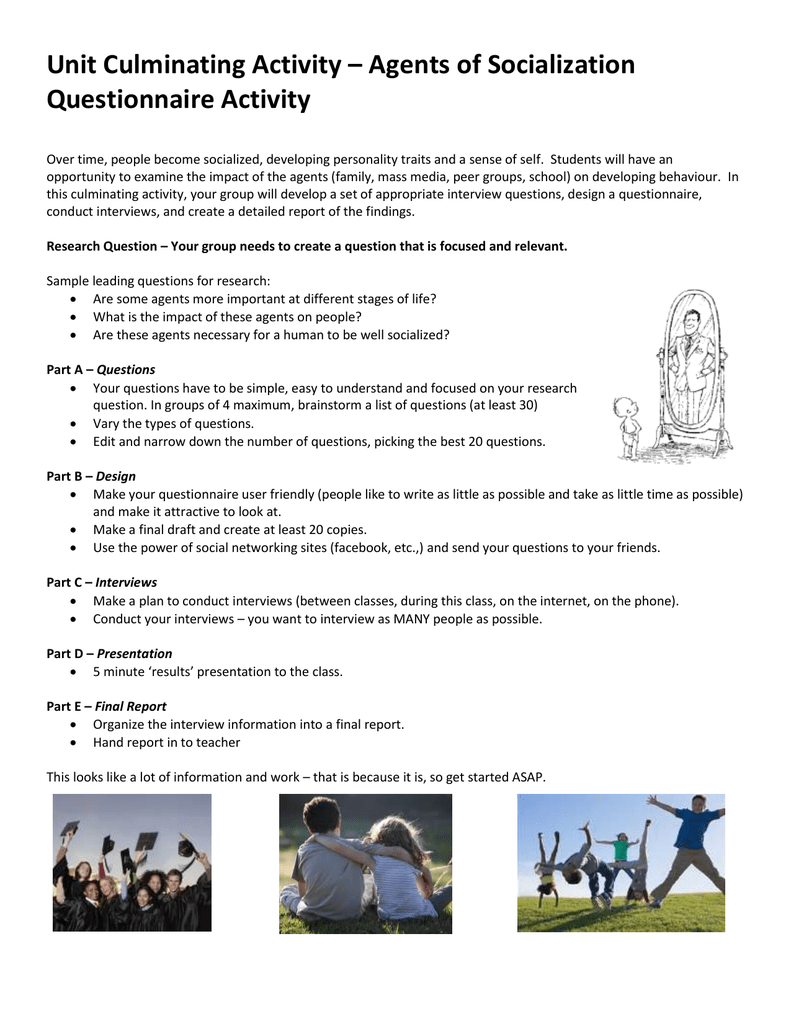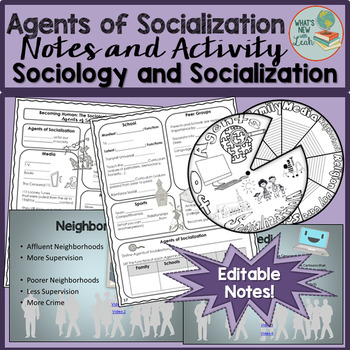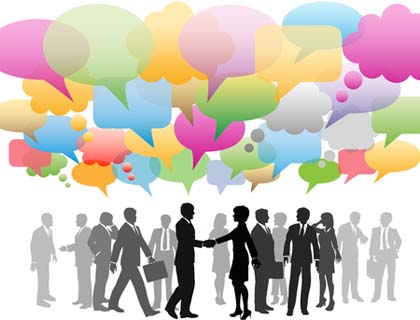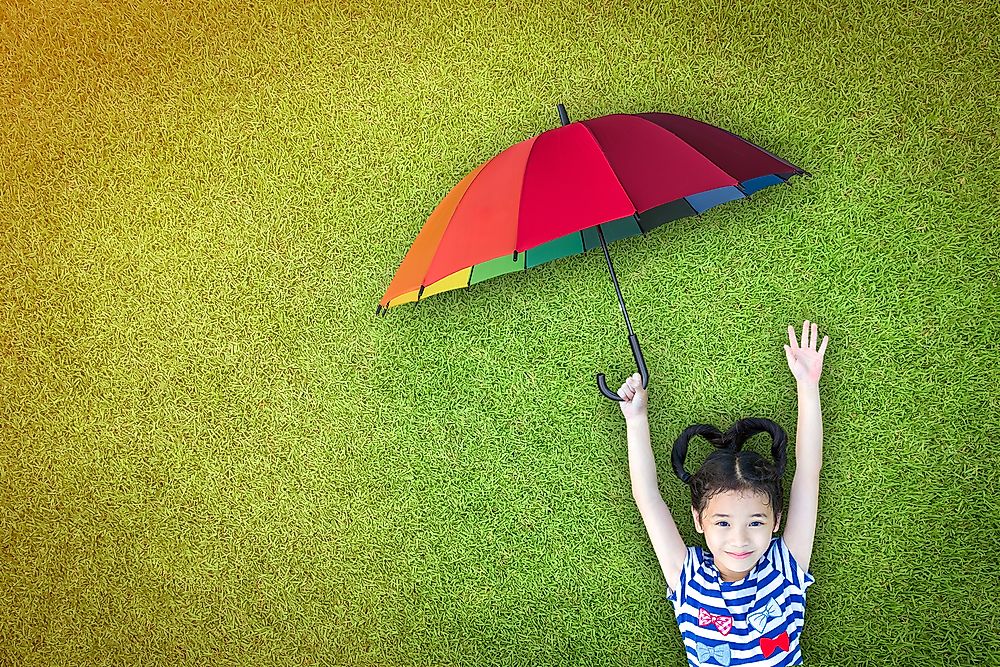Socialization is the process by which individuals learn the norms, values, and behaviors that are appropriate for their culture and society. It is a crucial part of human development and helps to shape our identity and our relationships with others. There are several agents of socialization that play a role in this process, including family, schools, peer groups, mass media, and religion.
Family is often considered the primary agent of socialization. Children are exposed to the beliefs, values, and behaviors of their parents and other family members from a very young age. These early experiences can have a lasting impact on an individual's identity and worldview. For example, a child who is raised in a household that values education and hard work is more likely to develop similar values themselves.
Schools are another important agent of socialization. They provide a structured environment where children can learn about the broader culture and society in which they live. Schools teach students about history, science, math, and other subjects, but they also teach them about social norms and expectations. For example, students learn about appropriate behavior in the classroom, how to respect authority figures, and how to work collaboratively with their peers.
Peer groups are another significant influence on socialization. As children grow older, they begin to spend more time with their peers and less time with their family. These peer groups can shape an individual's behavior and values in important ways. For example, children who are part of a group that values academic achievement are more likely to value education themselves. On the other hand, children who are part of a group that engages in risky or dangerous behaviors may be more likely to adopt those behaviors themselves.
Mass media, including television, movies, and social media, are also important agents of socialization. They provide a window into the broader culture and can shape an individual's beliefs, values, and behaviors. For example, children who watch a lot of TV may be more likely to adopt the values and behaviors of the characters they see on the screen. Similarly, social media can influence an individual's sense of identity and self-esteem by providing a platform for comparison with others.
Finally, religion is another agent of socialization. It provides a set of beliefs and values that can shape an individual's worldview and behavior. For example, someone who is raised in a religion that emphasizes compassion and charity may be more likely to value these qualities themselves. On the other hand, someone who is raised in a religion that emphasizes strict rules and hierarchy may be more likely to value obedience and respect for authority.
In conclusion, the agents of socialization are the various sources that shape an individual's beliefs, values, and behaviors. These agents include family, schools, peer groups, mass media, and religion, and they play a crucial role in human development and socialization.





